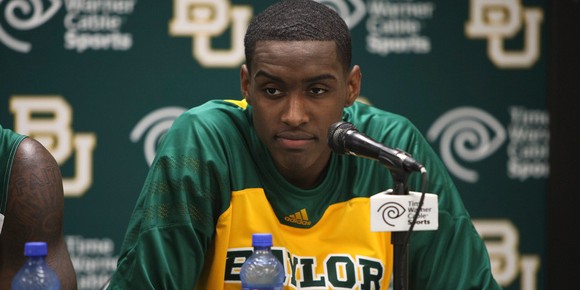
69 underclassmen declared for the 2011 NBA Draft. Players had until May 8 that year to “test the waters” and determine whether they would keep their names in the draft pool, or withdraw their names and return to their respective universities.
Around the cutoff date for players to make a decision as to whether they would confirm or retract their draft declaration, the NCAA passed a new rule that moves up the deadline, starting with this year’s group of talented underclassmen. The new deadline is the first day of the spring National Letter of Intent signing period. Those players who declare for the draft must remove their names prior to that day if they wish to retain their student-athlete eligibility and return to play college ball.
It is very clear – this new rule was not implemented for the benefit of college basketball players. Instead, it was established in order to further protect universities and their coaches from basketball players who, in an effort to receive a good estimation of whether they will be drafted and at what position, take their time before making a decision about staying in the draft pool or returning to school. Understandably, if a player takes a large amount of time to make his decision and then decides to stay in the NBA Draft, his school and coach may be negatively affected by having less time to recruit high school players to replace the player who is exiting. This year, the deadline is April 10, roughly a full month prior to last year’s May 8 deadline. In the world of recruiting, that extra month could go a long way for major programs. But what about the players?
I believe there is an easy answer for players who are seriously considering leaving school early to try and become one of the highest NBA picks in the NBA Draft. This answer will not please the players’ coaches and universities, but then again, those entities were not complaining when the new rule, which provides a disadvantage to talented underclassmen, was implemented.
The NBA has a different Early Entry Eligibility Deadline than the NCAA. While the NCAA says that underclassmen who declare for the NBA Draft must make a decision by April 10, the NBA allows players to enter their names into the NBA Draft as late as 11:59 pm EST on April 29. Thus, I propose the following solution for players who are considering entering the NBA Draft prior to the expiration of their student-athlete eligibility.
- DO NOT declare for the NBA Draft prior to the NCAA’s April 10 deadline.
- DO submit your name to the NBA Undergraduate Advisory Committee prior to the April 3 deadline.
- DO take the NBA Undergraduate Advisory Committee’s [conservative] evaluation very seriously prior to deciding whether or not to leave school early (opinion is released by April 6).
- DO NOT agree (orally or in writing) to be represented by any particular sports agent prior to determining with 100% certainty that you will be declaring for the NBA Draft after the April 10 deadline.
- DO declare for the NBA Draft prior to the NBA’s April 29 deadline after accumulating as much information about the likelihood of you being drafted and at what position (but realize that declaring at this stage will terminate any remaining student-athlete eligibility).
There is not a single underclassman who is seriously considering entering the NBA Draft that should not apply for an evaluation from the NBA Undergraduate Advisory Committee. This is especially true because underclassmen are no longer afforded the opportunity to participate in pre-draft workouts; essentially there is no longer such a thing as “testing the waters.” The NBA Undergraduate Advisory Committee, which is comprised of General Managers, Assistant General Managers, VP’s of Player Personnel and other team executives, will provide as narrow of a draft range as they can with confidence. Applying for an evaluation DOES NOT constitute declaring for the NBA Draft, and it is highly recommended by yours truly.

4 replies on “Advice For 2012 NBA Draft Early Entry Candidates”
Thanks Darren for posting this. Good information not only for athletes but new agents as well.
You hit the nail on the head! Wait until April 29th to make a decision based on the UAC’s evaluation. Players entering early (before April 10) are likely receiving poor advice since they are limiting their decision-making window by 19 days.
Interesting read. So, basically, there is no reason to declare prior to 4/10, because only those players who have previously declared must remove their names. If you declare on 4/11, then you are clear of the NCAA’s new rule? I have not seen the text of the rule, but if this is the way it works, I have to really wonder about guys like Mason Plumlee….
If you declare on 4/11, you cannot return to play NCAA basketball.